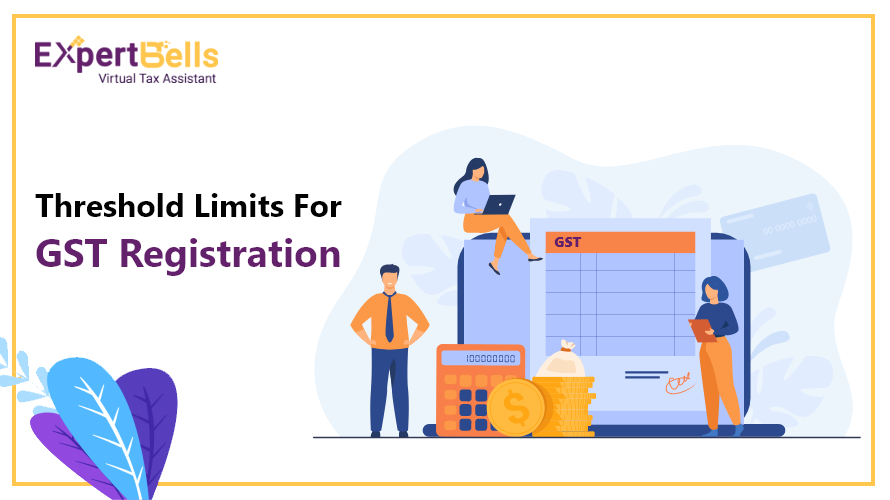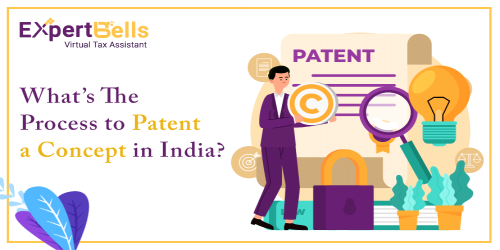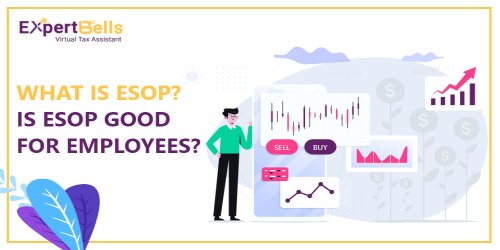Threshold Limits for GST Registration

Goods and service tax (GST) is an indirect tax which was brought into existence to replace old indirect taxes which were VAT, service tax, excise duty etc. It came into existence from 1st July 2017.
It is a comprehensive tax structure launched by government to simplify indirect taxes. It is charged on every stage of value addition in goods and services.
In case of Intrastate, CGST and SGST is charged, while for interstate sales, IGST is charged.
There is a concept of output tax and input tax in GST. Output tax is charged and collected from your customers for the goods and services you sell to them.
Input tax is the GST paid by you on your business purchases. It can be both local purchases and imported goods.
When GST Registration is Required?
Based on Turnover
Before 1st April 2019, GST registration in India was mandatory for if you were selling goods or providing services and your turnover was exceeding Rs. 20 Lacs (10 Lacs for special category states) annually.
But, From 1st April 2019, on the basis of demand raised by small scale enterprises, the turnover limit was increased for sale of goods.
There was no change for turnover limit in case of sale of services.
Currently, you are required to get registered in GST if you turnover exceeds Rs. 40 Lacs (20 Lacs for special category states) annually in case you are selling goods.
The limit for services in still Rs. 20 Lacs (10 Lacs for special category states).
.png)
Turnover Calculation for Above Limits
For GST registration, Turnover includes:
- Taxable Supplies
- Zero rated supplies
- Nil rated supplies
- Non-GST supplies
- Value of outward supply on which recipient is required to pay GST under reverse charge
- Tax other than GST
- Goods supplied and received on Job work basis
- Supply made by agent on behalf of his principal
Turnover Excludes:
- Value of inward supply on which recipient is required to pay GST under reverse charge
- Amount of Central, state, integrated tax and cess charged
- Transactions which are not considered as supply of goods and services as per CGST act, 2017
- Good supplied or received under Job work as per conditions of section 143 of CGST act
Mandatory Registration Irrespective of Turnover
1) If a person is making inter-state taxably supply of goods, he is mandatorily required to register under GST irrespective of turnover
2) Casual taxable persons who occasionally undertakes taxable supplies transactions in a state where they have no fixed place of business are mandatorily required to take registration in such state.
It excludes supply of handcrafted goods.
3) Persons who are liable to pay tax under reverse charge is required to take mandatory registration irrespective of threshold turnover.
4) Ecommerce operators (ECO) who are liable to pay tax under section 9(5) are required to take mandatory registration.
ECOs are liable to pay tax on behalf of certain service suppliers which are:
- Transportation of passengers by a radio-taxi, motor cab, maxi cab and motorcycle
- Providing accommodation in hotels, inns, guest houses, clubs, campsites, or other commercial places meant for residential or lodging purposes
- Services by way of housekeeping, such as plumbing, carpentering
ECOs are required to pay tax on behalf of above service providers only if such suppliers are below the threshold limit for obtaining GST registration.
5) Non-resident taxable person making taxable supplies in India is required to take registration irrespective of his turnover
6) Non-resident taxable person means a person who occasionally carries out taxable supplies transaction in India and does not have a fixed place of business or residence in India.
7) Persons who are liable to deduct and pay TDS as per section 51 of CGST act 2017 are required to take separate registration as TDS deductor
8) Person who supplies goods or services as an agent on behalf of other persons is also mandatorily required to register under GST irrespective of turnover.
9) Input service distributor is also required to mandatorily registered under GST as an input tax distributor.
Every person supplying online information and database access or retrieval services (OIDAR) from outside India to a non-registered person in India is mandatorily required to get registered under GST.
When GST Registration is Not Required
- When a person is exclusively engaged in only supply of goods or services not liable to tax or exempt from tax under CGST act, 2017.
- Person doing agricultural activities and involved in supply of agricultural produce out of his land.
- Person who is advocate
- Individual supplying sponsorship services
- Person supplying taxable goods or services on which tax is required to be paid by recipient under reverse charge mechanism
Hope this helps you in deciding whether your business has the requirement of GST registration or not, we want to make sure you do not miss on any statutory compliances.
Related Articles

Conversion of Private Limited Company into Public Limited Company
A private company is a business entity held under private ownership. The company may issue stock and have shareholders, but company's shares do not trade on public exchanges like BSE or NFT and are not issued through an initial public offering (IPO).
Leave A Reply
Your email address will not be published. Required fields are marked *
Most Popular Blogs


What is a Mentor? Definition, Purpose & More

Difference Between Mentor and Mentee

How To Find A Business Mentor: A Complete Guide





5 Comments
Lorem Ipsum is simply dummy text of the printing and typesetting industry. Lorem Ipsum has been the industry's standard dummy text ever since the 1500s, when an unknown printer took a galley of type and scrambled it to make a type specimen book. It has survived not only five centuries, but also the leap into electronic typesetting, remaining essentially unchanged. It was popularised in the 1960s with the release of Letraset sheets containing Lorem Ipsum passages, and more recently with desktop publishing software like Aldus PageMaker including versions of Lorem Ipsum.
Lorem Ipsum is simply dummy text of the printing and typesetting industry. Lorem Ipsum has been the industry's standard dummy text ever since the 1500s, when an unknown printer took a galley of type and scrambled it to make a type specimen book. It has survived not only five centuries, but also the leap into electronic typesetting, remaining essentially unchanged. It was popularised in the 1960s with the release of Letraset sheets containing Lorem Ipsum passages, and more recently with desktop publishing software like Aldus PageMaker including versions of Lorem Ipsum.
Lorem Ipsum is simply dummy text of the printing and typesetting industry. Lorem Ipsum has been the industry's standard dummy text ever since the 1500s, when an unknown printer took a galley of type and scrambled it to make a type specimen book. It has survived not only five centuries, but also the leap into electronic typesetting, remaining essentially unchanged. It was popularised in the 1960s with the release of Letraset sheets containing Lorem Ipsum passages, and more recently with desktop publishing software like Aldus PageMaker including versions of Lorem Ipsum.